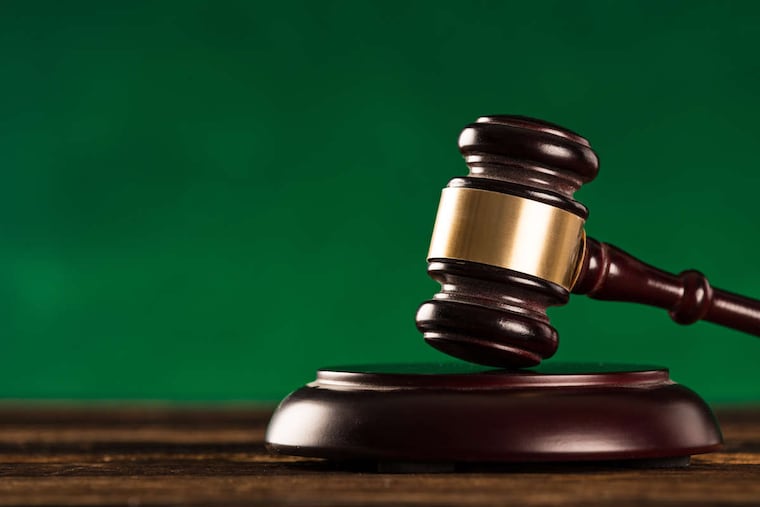Did judge overstep in appointing defense attorney as special prosecutor in DA’s case?
Philadelphia Judge Anne Marie Coyle appointed a special prosecutor for a probation violation hearing in a criminal case, angering both the District Attorney's Office and the defendant's lawyer.

A Philadelphia judge on Thursday defended her controversial decision to remove an assistant district attorney and unilaterally name another lawyer as a "special prosecutor" in a probation violation hearing, a step the District Attorney's Office contends is not just unusual but inappropriate.
During a hearing on the matter, Common Pleas Court Judge Anne Marie Coyle said she was acting within her authority when she assigned the special prosecutor, James Lloyd, last week.
But Paul George, assistant supervisor of the district attorney's law division, and Peter Carr, supervisor of the Civil Litigation Unit, told the judge that they could find no statute or case law for her order. And Joseph Coleman, the lawyer for the man accused of violating probation, told her, "I believe the court was abusing its authority."
The office last week appealed Coyle's order to Superior Court. On Thursday, Coyle agreed to hold off on the probation violation hearing until after the court rules, but maintained she had the right to appoint Lloyd. She said the District Attorney's Office essentially had removed itself by saying it would not participate in the hearing.
This is the latest example of pushback against District Attorney Larry Krasner, a former criminal-defense attorney who was sworn into office in January. Krasner has been implementing policies he says are an attempt to remedy an overly punitive system.
The case involves defendant Demetrius Mayfield, 26, who has a long rap sheet and who was charged in 2016 with gun and drug offenses. In May, he pleaded guilty under a negotiated deal to a felony charge of possession of a firearm prohibited by a felon. Coyle sentenced him to 11½ to 23 months in jail, followed by probation. With credit for time served, Mayfield was immediately released from jail. He was prohibited during probation from being in a home or vehicle with drugs or guns.
But Mayfield was rearrested in July on new charges after police found drugs and two guns in a car he had been in with a passenger. He has been in custody since then.
Coyle said in court Thursday that she had ordered assistant district attorneys to file a "Daisey Kates motion," in which a prosecutor asks the court to revoke probation based on a new arrest before the person is tried. But, she said, prosecutors did not proceed with the motion.
More recently, on Sept. 19, when she wanted to hold the hearing, the District Attorney's Office refused to participate and "effectively removed itself from the revocation hearing," Coyle said. That left her with no other option than to appoint a special prosecutor, she said.
Ben Waxman, Krasner's spokesman, said by email Thursday that it has been Krasner's policy that his first assistant must approve a Daisey Kates motion and that such situations are handled case by case. "In this case, the first assistant did not give approval," Waxman wrote.
In court Thursday, George said the office wanted to wait until after Mayfield's open case is resolved before proceeding with a probation violation hearing, thus avoiding future appellate issues.
Some legal observers said they could find no statute for Coyle to appoint a special prosecutor.
"There's already a law that lets a judge follow a process to get the attorney general involved if for some reason the District Attorney's Office can't do a case," said Jules Epstein, a Temple University law professor.
One concern, he said, is that "judges are supposed to be judges, and prosecutors are supposed to be prosecutors."
Defense attorney Michael Coard, a Krasner ally, led a small protest outside the courthouse Tuesday. Speaking through a bullhorn, he called Coyle's conduct "absolutely outrageous." Berto Elmore, another defense attorney, added: "I don't think it's even legal."
However, former state Supreme Court Chief Justice Ronald Castille, who served in the District Attorney's Office for 20 years and was district attorney from 1986 to 1991, said Thursday that although the special-prosecutor appointment "may be unusual," it was "within the ability of the trial judge."
Meanwhile, Coyle scheduled Oct. 18 for a preservation-of-testimony hearing and ordered Lloyd, who served in the District Attorney's Office in the early 2000s, to subpoena relevant police officers in Mayfield's July arrest to testify.